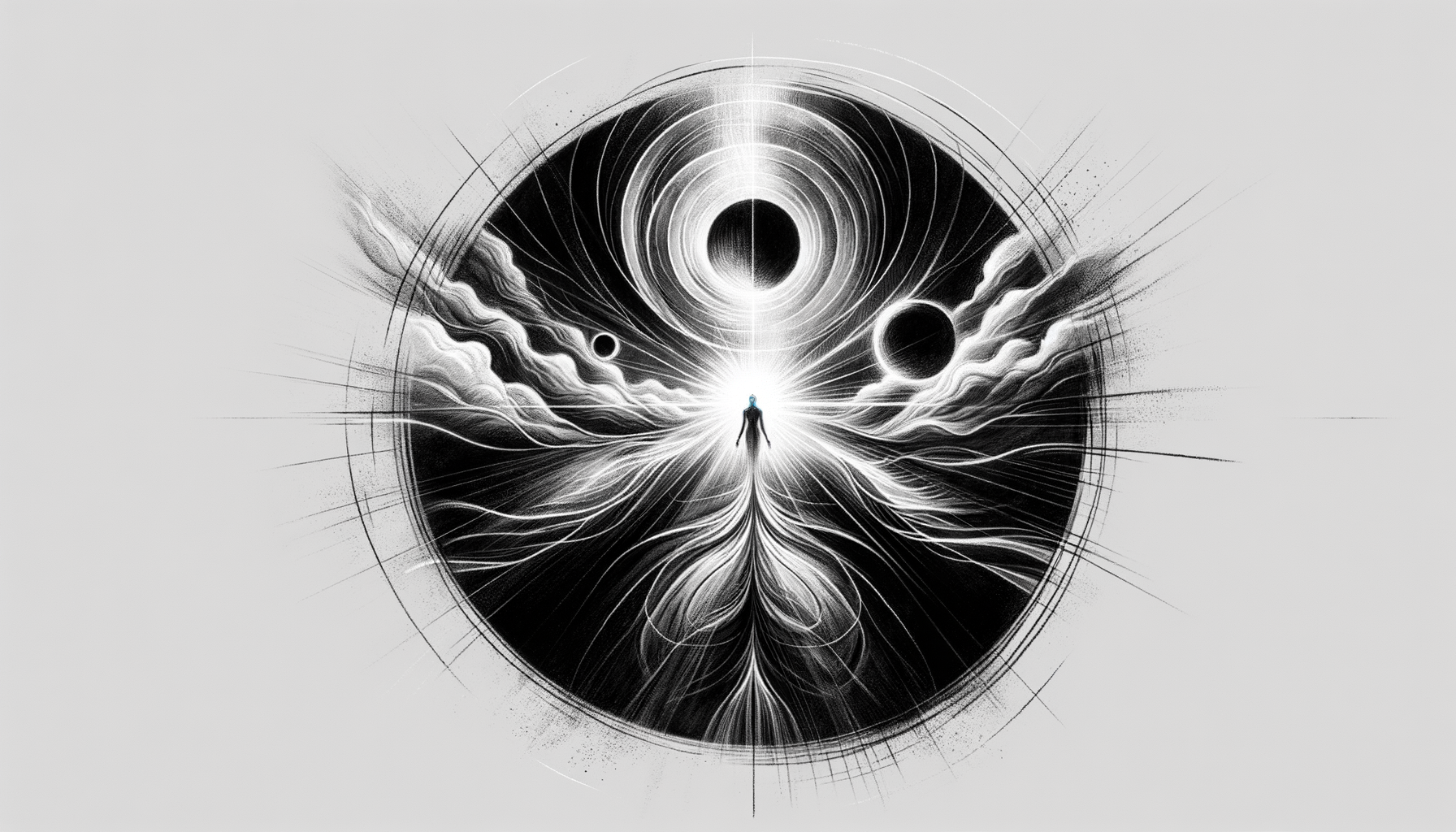Have you ever had that moment when someone looks at you—not just at you, but really sees you? Like when your friend guesses exactly what you’re thinking before you open your mouth, or when a stranger compliments something about you that you didn’t think anyone noticed? It’s as if, for just a moment, someone holds up a mirror and says, “Hey, this is who you are, and by the way, they’re amazing.”
I didn’t realize I needed someone to see me like that until the day I met Dr. Elizabeth “Liz” Cantor—a professor whose name feels far too formal for someone with wild gray curls and a tendency to teach lectures barefoot. But before Liz, I was stuck in one of life’s frustrating holding patterns. You know the kind—feeling like a supporting character in your own rom-com, waiting for someone to shout, “Hey, main character energy over here!” I didn’t realize it wasn’t “someone” I needed to notice me—it was me.
Part One: From Fish Tanks to Blank Pages
When I started college at UCSD, I was all in on marine biology. My childhood bedroom? A marine life theme park. Posters of coral reefs, books on dolphin communication, even a DIY jellyfish lamp I built in sixth grade. My mom, a brilliant marine biologist, once joked, “Some kids want to swim with dolphins—you wanted to file paperwork on their migratory patterns.” I mean, classic overachiever vibes, right?
But something odd happened between memorizing Latin names for mollusks and dissecting squid in lab coats that smelled vaguely of low tide—I felt restless in a way I couldn’t explain. Imagine spending your entire life training for a surfing competition, only to discover you don’t love surfing. That’s a pretty bad wave to wipe out on.
Add to that restlessness a creative writing elective I was taking “for fun,” and suddenly, I felt like a fraud. In these writing classes, other students spilled their souls onto the page through poignant poetry and clever essays. Meanwhile, my attempts at fiction mostly involved starfish as metaphors for existential dread. And yet, for the first time in ages, I felt... free. Like I wasn’t carrying the weight of my LinkedIn profile or my parents’ admiration or even my imagined destiny as The Next Jacque Cousteau. I didn’t know what I was doing, but I didn’t hate it.
Part Two: The Professor in the Straw Hat
Enter Liz Cantor. She taught Environmental Writing, a course I nervously enrolled in after realizing my marine biology major had turned into an elaborate act of denial. After the first class, I was hooked—not just on the material, though her deep dives into eco-activist essays were riveting—but on her.
Liz reminded me of those wise mentors in every movie where the protagonist is adrift. Think Oz in Buffy the Vampire Slayer meets Robin Williams in Dead Poets Society—but with significantly more tie-dye. She asked questions that no one ever had, like “What do you feel when you walk along the shore?” and “Why does this tidepool matter to you?”
One day, she assigned an essay on our personal connection to a natural place. While the rest of the class dutifully churned out pieces about hiking trails or family lakeside retreats, I wrote about the La Jolla tidepools I’d explored since childhood. My essay wasn’t polished—it was messy, sprawling, and featured way too many references to how sea anemones “look like alien suction cups.” I handed it in, fully expecting to be graded politely and forgotten.
But then Liz called me into her office.
She had the essay in her lap, a coffee mug precariously balanced on a stack of tattered books. “You’re not just writing about the tidepools,” she said as she circled a sentence so forcefully you’d think it had insulted her. “You’re writing about connection, identity, belonging. You ever think it might be what you’re supposed to do?”
Cue the sound of my internal record scratching.
You mean... this? Writing about how hermit crabs mimic the chaos of young adulthood? That’s something I’m allowed to do? It felt like someone was giving me permission to step outside the story I thought I was assigned and, for the first time, write my own.
Part Three: Seeing the Potential I Didn’t Know Was There
From then on, Liz kept nudging me in ways so subtle, I didn’t realize I was being mentored until much later. She’d send me articles on writing residencies, casually suggest workshops, and once emailed me a Joan Didion essay with the subject line: “This feels like your vibe.”
It wasn’t all swooping breakthroughs or cathartic epiphanies—it rarely is. But Liz taught me that being “seen” isn’t just about what other people notice about you; it’s about what you start to notice about yourself. And the moment you realize someone believes in your unusual, slightly weird vision of the world? Well, it’s hard not to believe in it too.
Eventually, her mentorship gave me the nerve to switch my major to creative writing (a decision that inspired more than a few raised eyebrows at family dinners). It gave me the clarity to breathe into my uncertainty, knowing that redefining your path doesn’t mean failing the old one—it simply means growing into the next.
Part Four: How to Be Someone Else’s “Liz”
Here’s the thing: You never know when you might be that person—the one who sees someone for who they are and silently hands them the key to unlock their potential. Liz didn’t sit me down for a grand intervention; she helped me chip away at my self-doubt, one encouraging word at a time.
If you want to be that person for someone, listen—not just the polite, nod-along kind of listening, but the kind where you hear what’s left unsaid. And when you see a spark in someone, tell them. Exaggerate a little if you have to (or don’t—it’s the one time you can be extra without consequences).
Conclusion: The Mirror You Hold to Yourself
Sometimes, being “seen” isn’t about accolades or compliments—it’s about a quiet moment where someone looks at you and sees a messy, in-progress, perfectly imperfect masterpiece. In my case, it was Liz. For you, it might be a friend, a stranger, or even a kid who tells you your outfit “looks like a cool mermaid.” (Yes, this once happened to me on the boardwalk. Yes, I cried a little.)
But most importantly, the person who finally sees you might just be... you. Trust me, it’s worth the look. And hey, if you’re still figuring out what that reflection looks like in the mirror, start small. You won’t need a barefoot professor in a straw hat forever—though I can confirm, it helps.




















